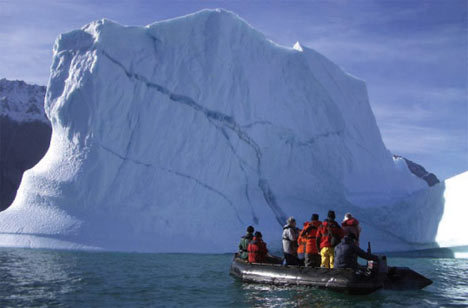Climate Change Weekly #49
The New York Times on April 30 published a news article that leads off with the assertion, “polls say 97 percent of working climate scientists now see global warming as a serious risk.” No such poll exists, but don’t expect the New York Times to make a correction any time soon.
The only poll that resembles the Times‘ assertion was an online survey in which only 79 respondents listed themselves as having climate science as their primary area of expertise. This is an absurdly small number of respondents – even overlooking the less-than-scientific nature of the poll itself – from which to draw meaningful conclusions.
Nevertheless, and still more importantly, the poll results were not what the Times reported. The poll merely asked two questions: (1) Have temperatures risen since pre-1800s levels and (2) Is human activity a significant contributing factor in temperature changes?
Sure, 77 of the 79 self-identified climate experts answered yes to both questions. Of course, I would answer yes, also, as would many and perhaps most other “skeptics.” The fact that the Earth is no longer mired in the Little Ice Age and humans may be contributing to some of the warming does not necessarily mean that “global warming [is] a serious risk.”
The New York Times is not alone among the media in parroting environmental activist groups’ untruthful talking points regarding the poll. But the Times does seek to market itself as a cut above the rest, does it not?
SOURCES: New York Times and Forbes.com
IN THIS ISSUE
Alarmists exaggerated alleged death threats … Bering Sea experiences record sea ice … Greenland glaciers moving slower than predicted … NOAA budgets money for magician … More temperature data being doctored?
ALARMISTS EXAGGERATED ALLEGED DEATH THREATS
Remember all those global warming alarmists who claimed they were receiving death threats for speaking up on climate change? It turns out many of them (at the very least) were not telling the truth.
The Australian government responded to the alleged threats by requesting copies of the alleged threats reportedly made against university personnel in Australia. The alleged recipients of the death threats then fought to prevent investigators from viewing the emails allegedly containing death threats. Ultimately, investigators gained access to the emails and determined that all but one “did not contain threats to kill or threats to harm.” Of the one that could be construed as a threat, the investigators concluded the threat to life or serious bodily harm was “not a real chance.”
SOURCES: UK Telegraph and JoNova
BERING SEA EXPERIENCES RECORD SEA ICE
The National Weather Service reports this has been “an extreme winter for sea ice” in the Bering Sea and “now we have broken records for most number of days with ice at both Saint Paul Island and Saint George Island.” Saint George Island experienced 79 days with sea ice this winter, obliterating the prior record of 60 days with sea ice. As of May 3, Saint Paul Island was experiencing its 103rd day (and counting) of sea ice, beating the prior record of 100 days.
SOURCE: Watts Up With That?
GREENLAND GLACIERS MOVING SLOWER THAN PREDICTED
Outlet glaciers in Greenland are moving toward the sea much more slowly than predicted by global warming alarmists, with the result being “sea level rise from Greenland may fall well below upper bounds,” report scientists at Ohio State University and the University of Washington.
SOURCE: Science
NOAA BUDGETS MONEY FOR MAGICIAN
The National Oceanic and Atmospheric Administration set aside $5,000 to hire a magician to motivate employees at a leadership training event. NOAA finally pulled the plug on the magician in wake of public outrage over the expenditure, which comes on the heels of the General Services Administration (GSA) scandal including the hiring of a mentalist to perform at a lavish GSA training session.
SOURCE: Washington Post
MORE TEMPERATURE DATA BEING DOCTORED?
Questionable retroactive changes are being made to past temperature data in the latest compilation of historical temperatures. Changes to the CRUTEM4 dataset, which is widely cited as an authoritative global temperature history, are skewing temperatures to appear colder in the past and warmer in recent years than previously reported.
SOURCE: Watts Up With That?
The Climate Change Weekly Newsletter has been moved to HeartlandDailyNews.com. Please check there for future updates!





